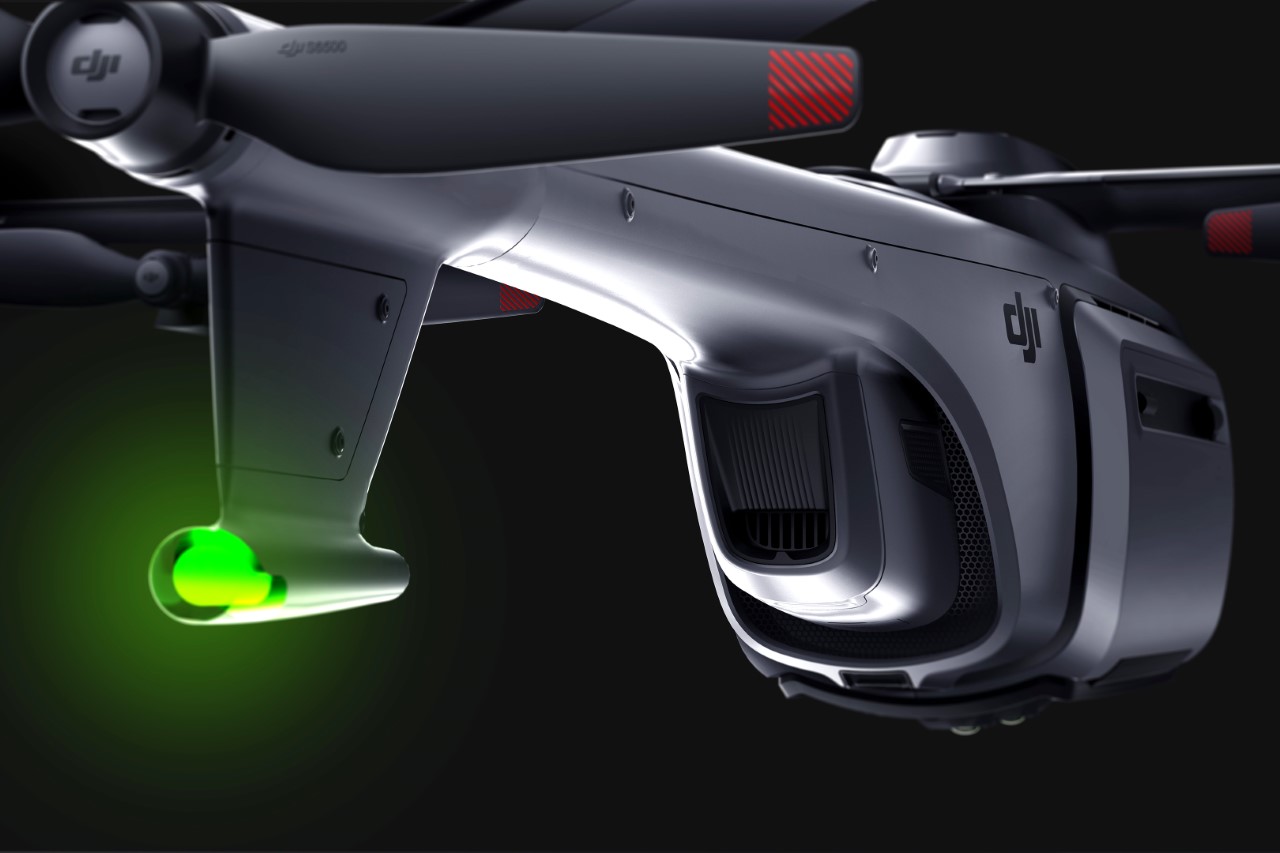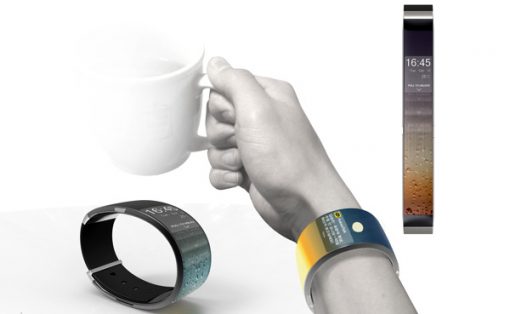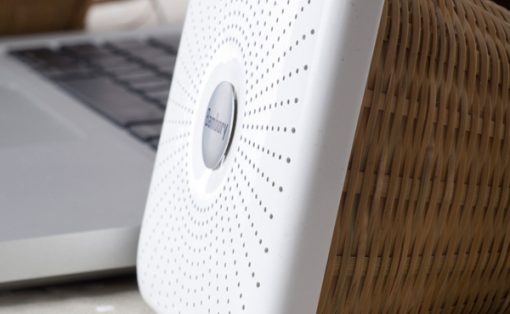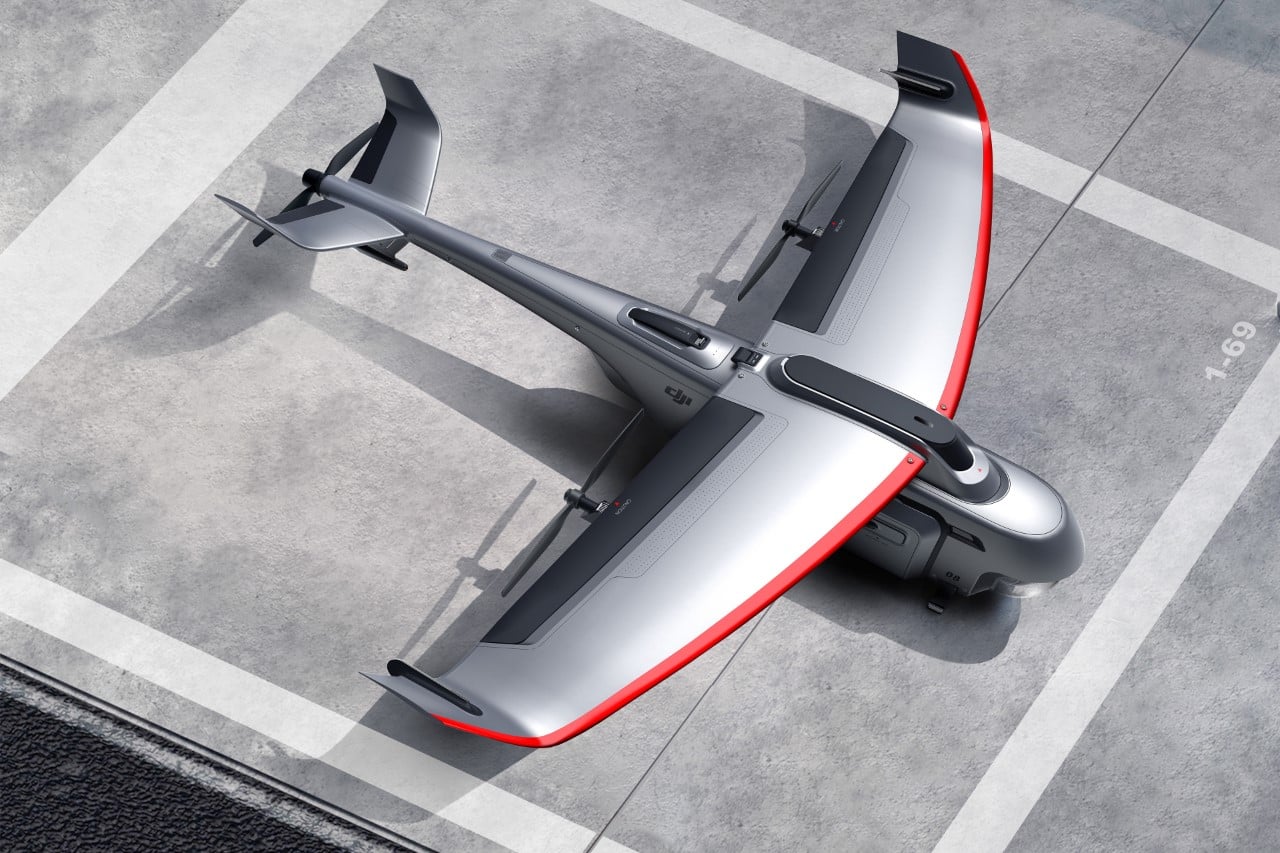
Designed to extend the range of delivery from specific hubs, the DJI Express can easily make short inter-city commutes to deliver cargo and supplies without needing a semi-truck or even a dedicated driver. Perfect for smaller cities located next to bigger ones, the drone takes on the role of a delivery-agent, helping easily and rapidly cover large distances to complete deliveries.
Designer: Qingsheng Meng
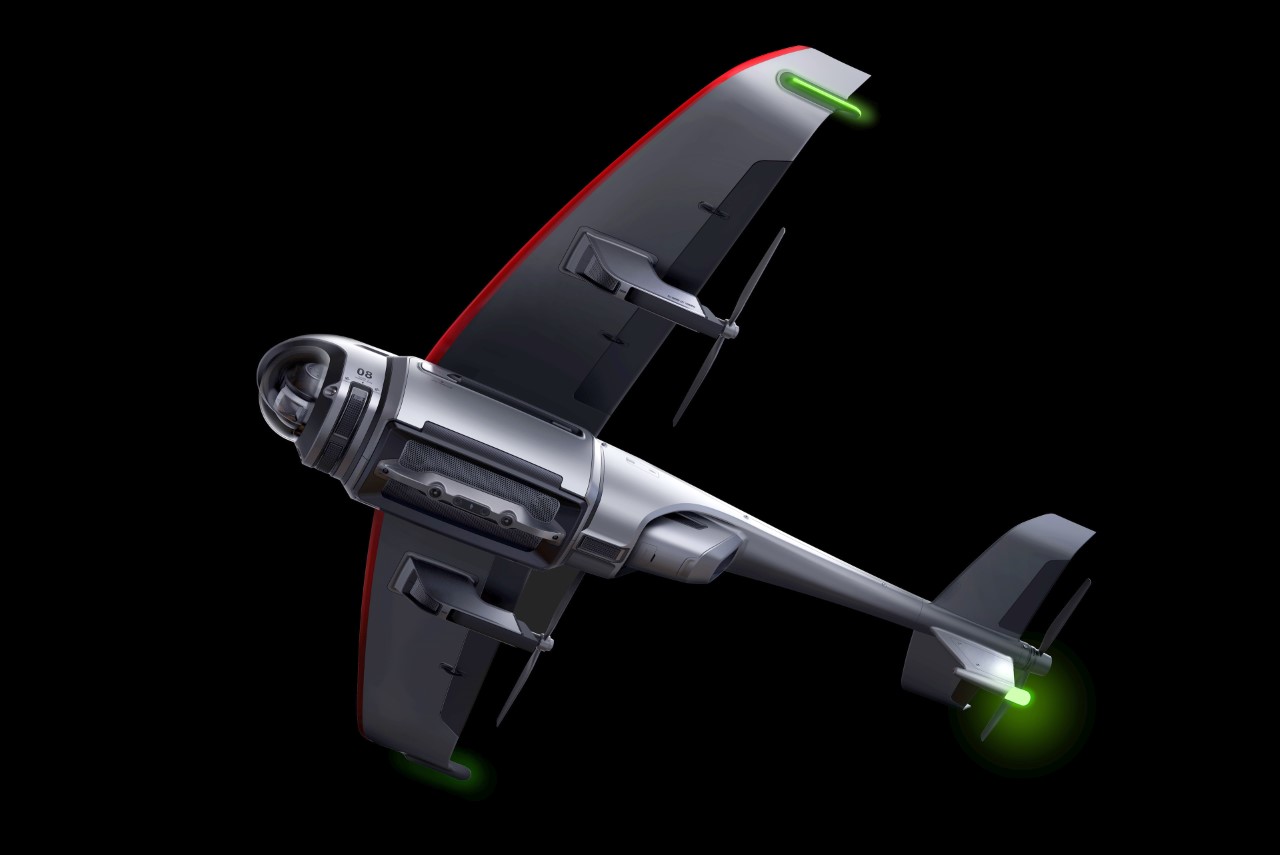
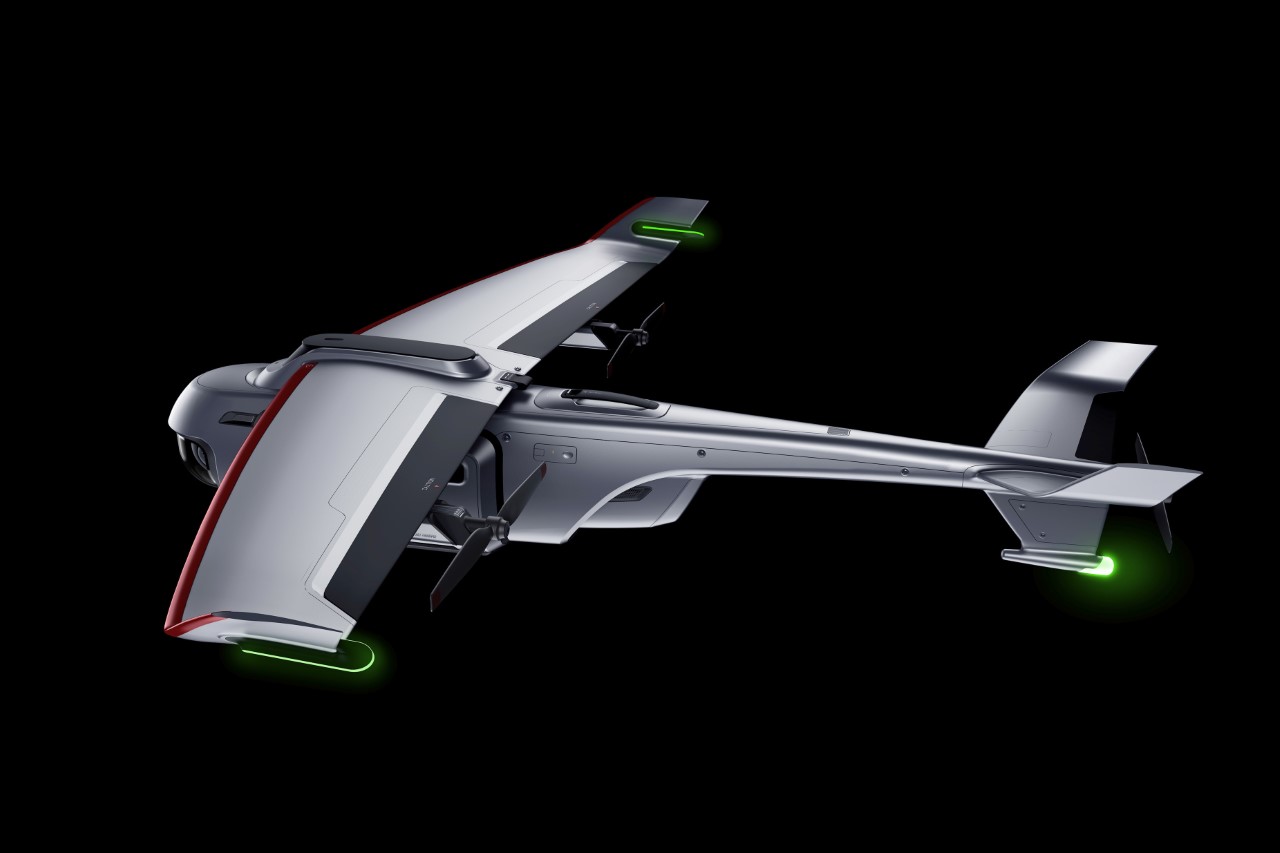
The DJI Express UAV concept, created by China-based Qingsheng Meng, explores a different format from the drones you’re currently used to. Unlike most quadcopter-shaped aerial devices, the Express takes on the shape of a winged eVTOL that can fly longer distances like your regular airplane. However, significantly smaller than most airplanes, the Express UAV, as its abbreviation suggests, doesn’t have any humans inside it. The unmanned aircraft is controlled entirely remotely, relying on a combination of sensors for route-mapping and obstacle avoicance, and a rather massive camera unit on the tip that allows the remote pilot to look around as they maneuver the craft.
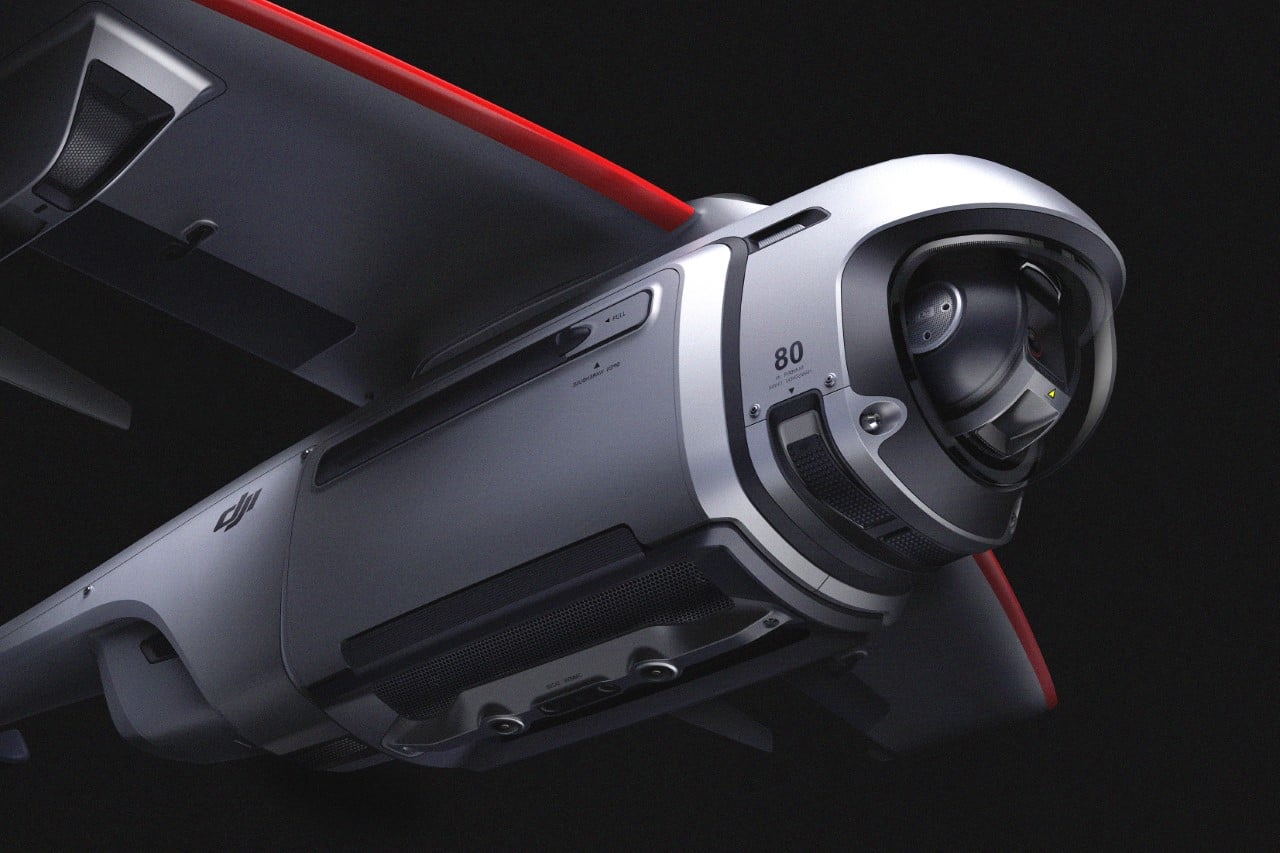
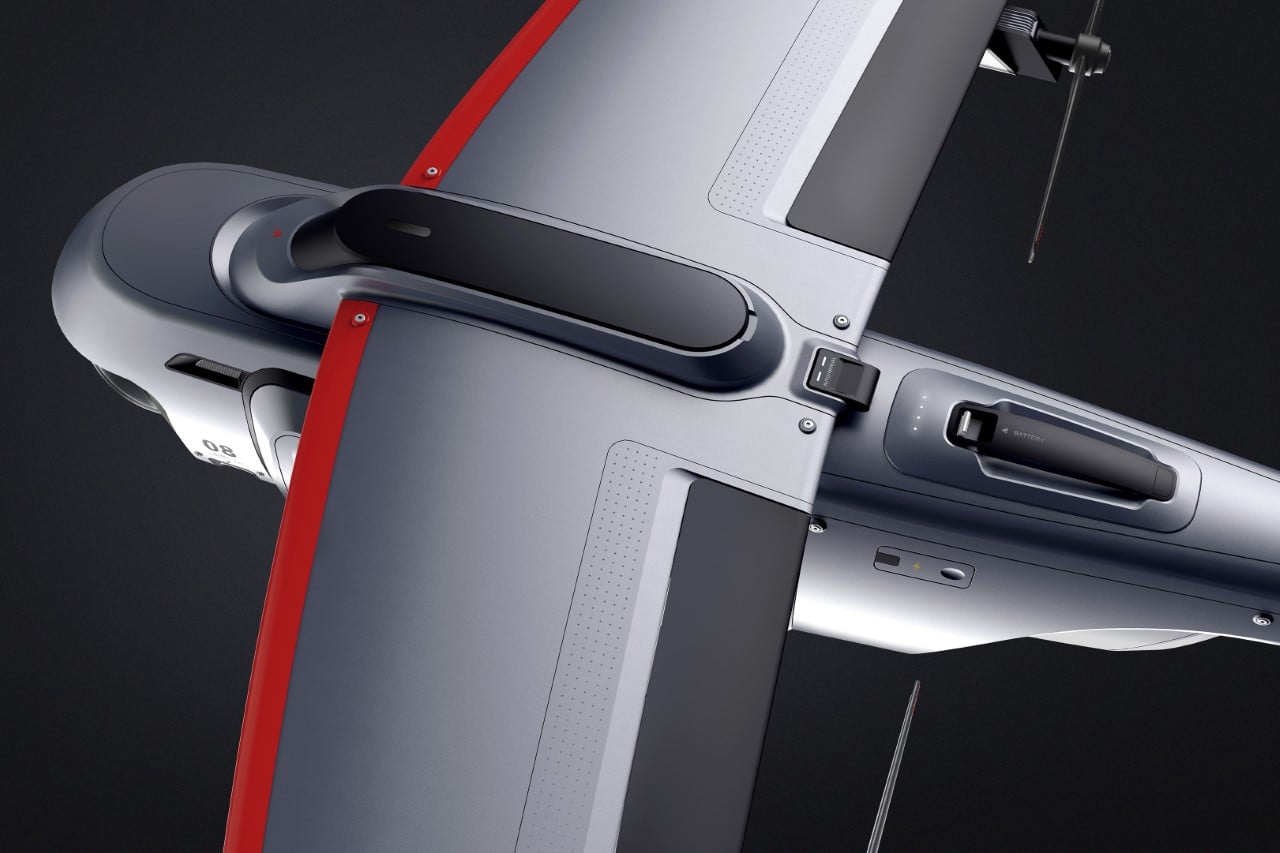
The drone’s design can functionally be split into a few distinct groups. You’ve got yourself a winged aircraft with propellers on each side. A high-definition camera mounted on a 2-axis gimbal on the front allows the drone to ‘see’, while the body of the aircraft houses a battery module on top, and the cargo payload at the bottom. Finally, a tail with a dedicated propeller helps with steering and stability.
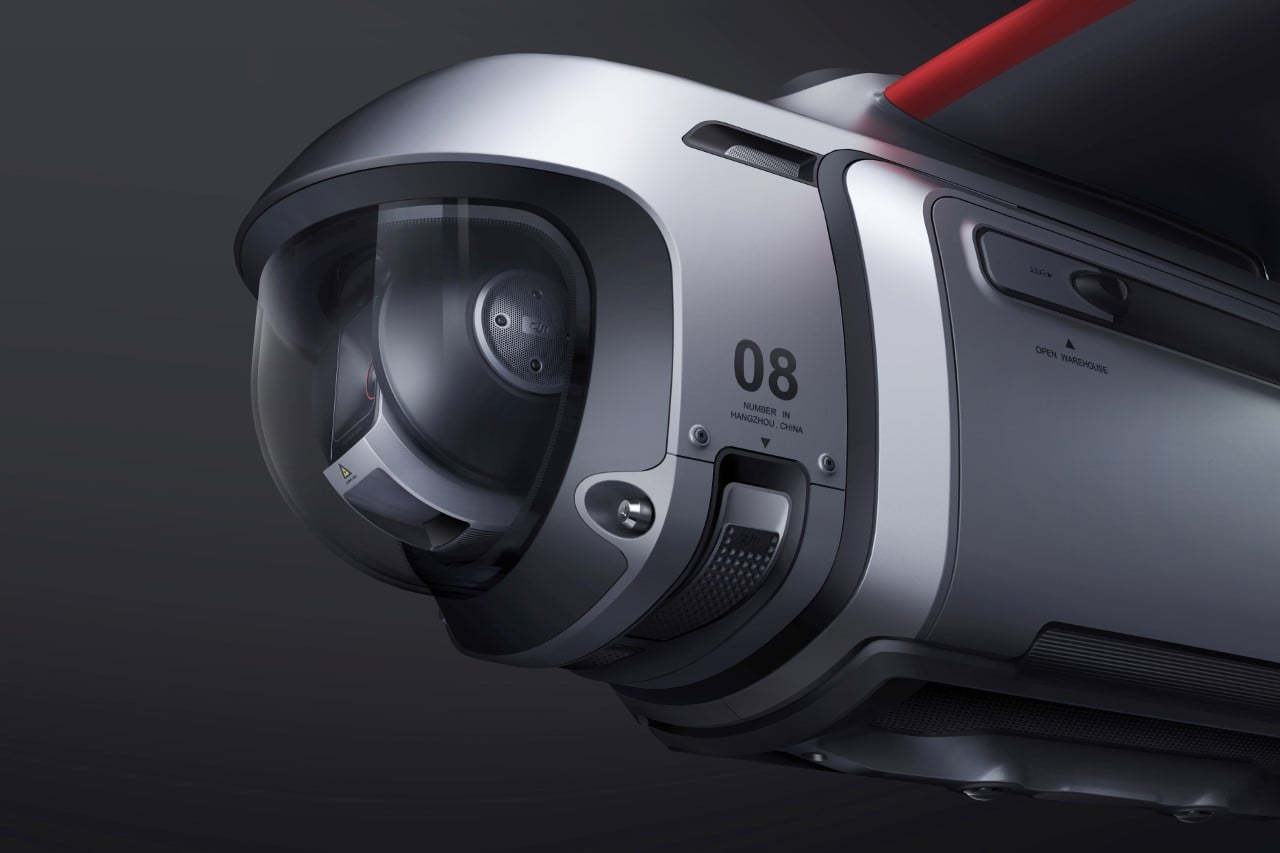

A close-up of the top shows you the drone’s detachable battery, which comes with an easy-to-pull-out handle for swapping battery cells during a delivery cycle. However, the drone has its own charging port too, allowing you to charge said battery packs – a feature that can be used while the drone’s grounded for a significant number of hours. In front of the battery is a flip-switch that lets you set the drone to auto or manual, hinting at fully-autonomous flying capabilities thanks to the intelligent obstacle-avoidance sensors on the top as well as the bottom of the craft.
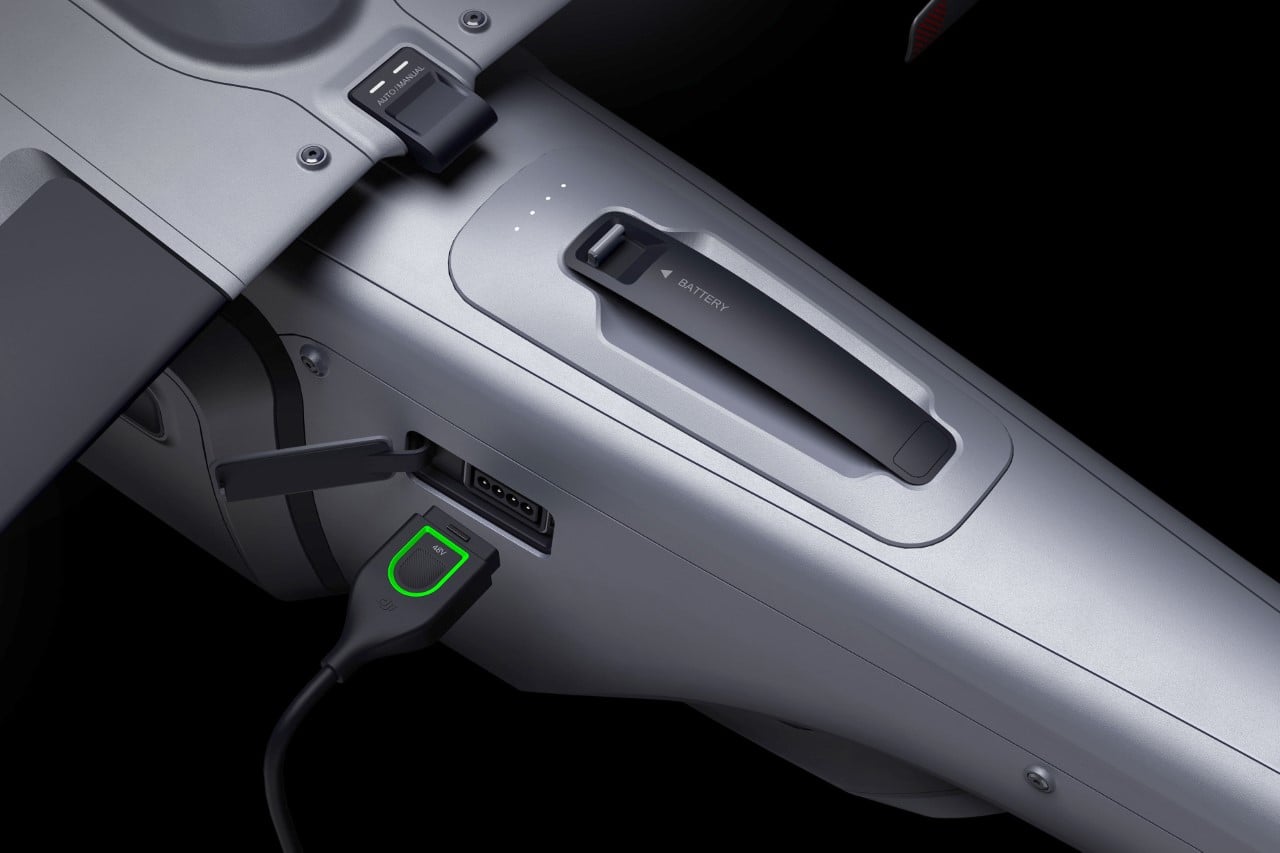
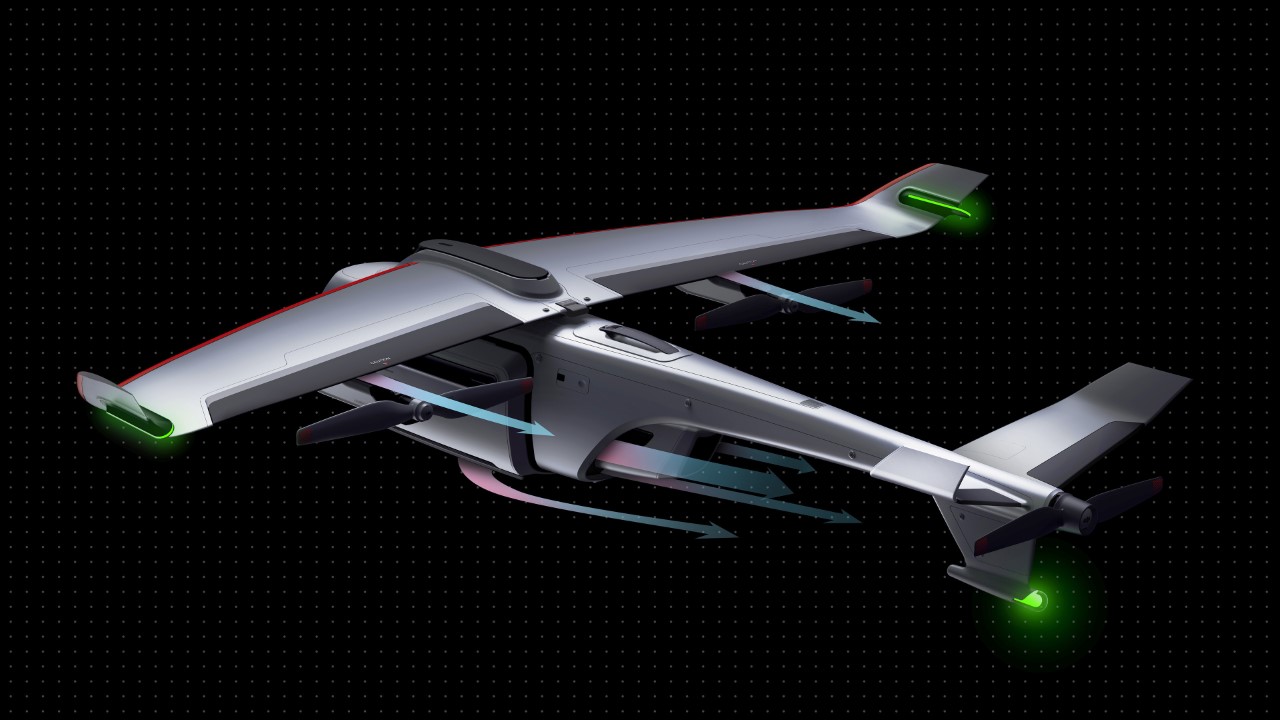
The DJI Express UAV’s design also has a rather well-ventilated fuselage that allows wind to rapidly cool the motor and batteries during flight. Cool air passes through the UAV’s body, helping maintain optimal temperatures during flight and keeping the battery healthy over longer journeys. Given the UAV’s fan-made conceptual nature, there are really no concrete details of its size or capabilities, although DJI does have a delivery drone in its enterprise roster – the Flycart 30. That being said, the Flycart still has a quadcopter-style design that severely limits its range and ability to deliver cargo over inter-city commutes.
